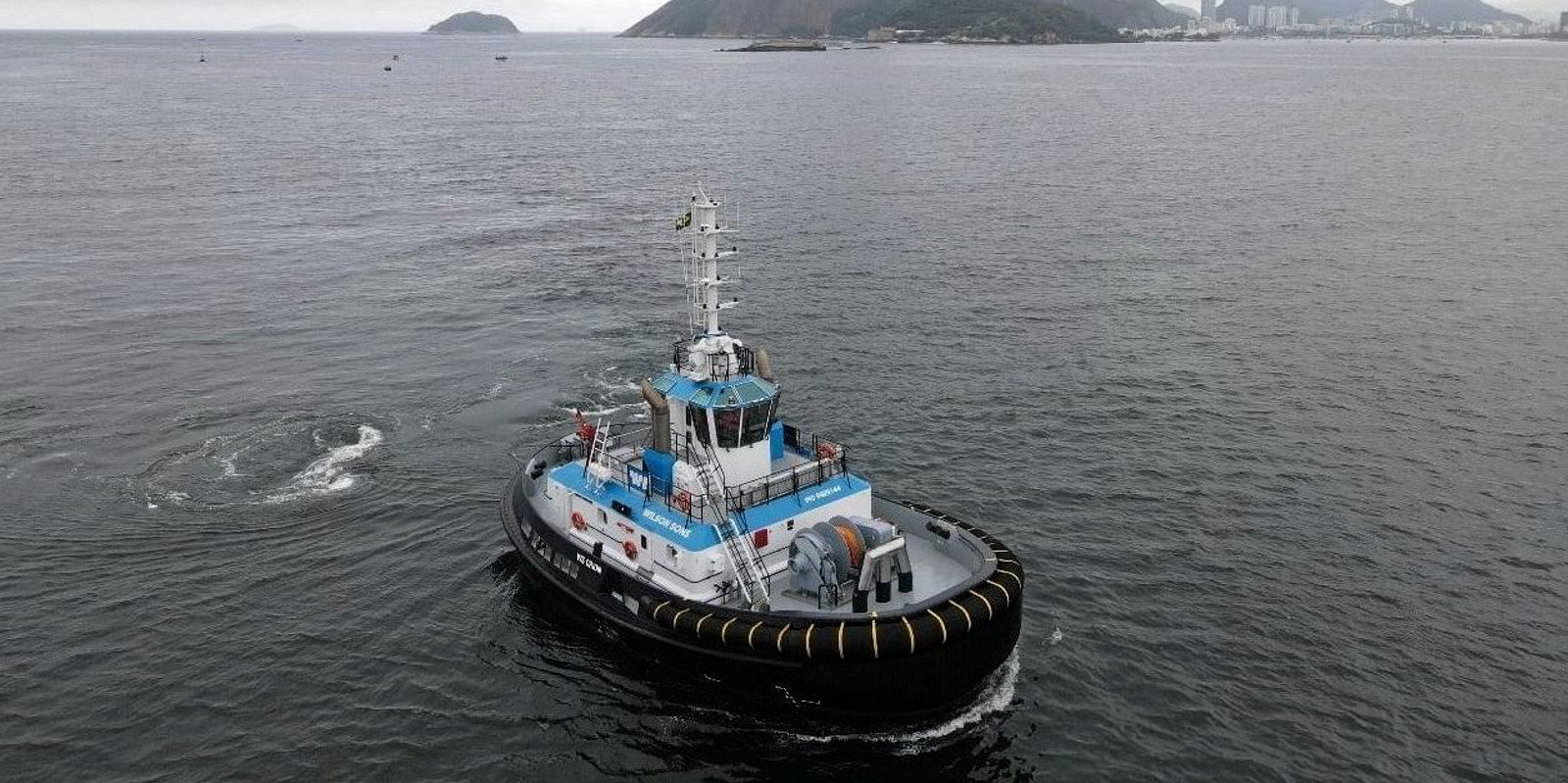Brazil’s Wilson Sons reported a cut in its greenhouse gas intensity and a boost in the percentage of women in its workforce.
The Sao Paulo-listed tug and terminal operator logged just over 63,900 tonnes of combined Scope 1 and Scope 2 CO2-equivalent emissions last year, a 4.8% dip from the greenhouse gas footprint in 2021, according to a just-released sustainability report.
That included nearly 62,400 tonnes of direct Scope 1 emissions in 2022 and 1,516 tonnes of Scope 2 emissions, which involve energy purchased to power its operations.
Like many companies, Wilson Sons does not report Scope 3 emissions, a reference to the indirect emissions produced in the supply chain for the products and services that a company purchases.
The 2022 decline comes after the prior year saw emissions surge and is still 9.4% higher than the more than 58,400 tonnes of CO2-equivalent emissions in 2020.
Wilson Sons highlighted that it slashed the greenhouse gas intensity of its terminal operations by 20% by reorganising the layout of its Salvador Container Terminal and prioritising equipment that runs on clean energy.
The company pumped out 10.3 kg of CO2 equivalent per teu moved in 2022, down from 12.8 kg in the prior year.
The 2022 figure is still higher than the 9.3 kg in 2020.
“We need to grasp every opportunity to further reduce our emissions and support the low-carbon economy,” said chief executive Fernando Salek.
Wilson Sons cut greenhouse gas intensity in its towage business, which makes up most of its carbon footprint, from nearly 983 kg of CO2 equivalent per manoeuvre in 2021 to 956 kg last year, although 2020 was even lower at almost 903 kg.
| 2022 | 2021 | 2020 | |
| Container terminals | 9,859 | 11,785 | 9,421 |
| Towage | 52,584 | 53,395 | 47,736 |
| Others | 1,472 | 1,960 | 1,263 |
| Total | 63,914 | 67,140 | 58,421 |
The reduction in 2022 was due to lower diesel consumption by tugs going to dry dock or working on special operations.
Wilson Sons also pointed to the operations of the first tugs delivered last year, each with 90 tonnes of bollard pull, from a six-vessel order. The third in the series began operating at the port of Acu last month.
The newbuildings have more efficient Tier 3 engines and a hydrodynamic design that reduces fuel consumption by 14%.

Wilson Sons received a B grade from the Carbon Disclosure Project last year, up from a C in 2021.
Meanwhile, the sustainability report also shows that 20.6% of Wilson Sons’ staff was female in 2022, up from 19.8% in the prior year and 16.8% in 2020.
Read more
- Green Seas: How companies are tackling an ocean-size gap in data about the sea
- Editor’s Selection: Maersk’s profits plunge, Iran’s latest ship grab and what’s bugging Wallenius?
- Green Seas: A US judge mulls court’s say over seafarer rights in pollution probes against ships
- Viewpoint: Pioneers or sitting ducks? Norway’s electric ferries are ready for the challenge
- Podcast: Time for shipping to get ready for the EU’s new carbon tax



